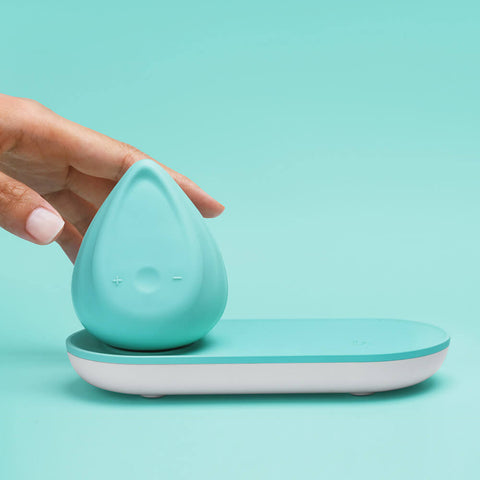Women can experience excitation problems, i.e., the lack of sexual interest or arousal, for various reasons, both physical and emotional. It’s worth noting that it’s completely healthy for sexual desire to fluctuate for various reasons. And it’s also valid and alright if you don’t experience sexual interest or desire. However, if your lack of sexual desire/ interest affects you, it’s worth exploring the root cause of your excitation problems.
The official term for consistently low sex drives in women is Hypoactive Sexual Desire Disorder (HSDD), also known as female sexual interest/ arousal disorder. Women often pass off the symptoms of HSDD as a natural consequence of age or bodily changes, but it can also be caused by other factors. Furthermore, you can take several measures to overcome excitation problems and restore your sexual desire or interest.
In recent years, there have been debates about whether to view women’s lack of sex drive as a “disorder.” Although the official term currently classifies the lack of sex drive as a “disorder,” you should only seek treatment if it affects your self-esteem. Studies have also shown that women naturally have lower sex drives than men and don’t think about sex as often. As such, there’s a need to evaluate your sex drive according to your individual standards.
Symptoms of Sexual Arousal Disorder
- Limited interest in sexual activity
- Sudden loss of interest in sexual activities
- Lack of sexual thoughts, desires, and feelings
- Inability to derive pleasure from sex
- Loss of pleasure from sexual stimulation
Potential Causes of Sexual Arousal Disorder
Identifying the root cause of your excitation problems can be incredibly challenging. That’s because the loss of sex drive may occur due to physical conditions, emotional factors, or a combination of the two. Furthermore, various physical and emotional factors may collectively contribute to your loss of sexual excitation. Below, we list out the potential physical and emotional causes of excitation problems.
Physical Causes
- Arthritic changes
- Diabetes
- Coronary artery disease
- Lower estrogen or testosterone levels
- Hormonal fluctuations
- Exhaustion due to work
- Obesity or being overweight
- Chronic physical pain
- Genital conditions that cause pain during sex
- Incontinence
- Menopause
- Pregnancy or breastfeeding
- Using certain medications, such as antidepressants and blood pressure medications
Emotional Causes
- Anxiety
- Depression
- Low self-esteem
- Sexual abuse
- Trust issues
- Relationship problems
- Power imbalances
- Infidelity
Therapy
A combination of therapy and lifestyle changes can help you overcome sexual arousal disorder caused by stress, mental anxiety, or relationship problems. You can consult a mental health expert to discuss your concerns and issues. Mental health experts can address excitation problems caused by underlying mental health concerns, such as depression, anxiety, stress, etc. They can also provide tips and strategies to improve your overall mental health and quality of life.
You can also talk to relationship experts to collectively discuss the issues that may cause desire problems in your relationship. At this stage, it’s essential for you and your partner to work as a team to address and resolve your issues. Therapists can also help you develop better communication skills to discuss your concerns with your partner(s). They may also suggest sexual techniques to enhance your pleasure and restore your libido.
Lifestyle Changes
Exercise
Stress is one of the leading causes of loss of sexual desire in women. And exercise is one of the most effective and natural means of reducing stress and anxiety. Regular exercise, such as running, swimming, strength training, and cardio workouts, can enhance sexual satisfaction and boost physiological sexual arousal. This paves the way for you to enjoy sexual stimulation.
Meditation
Mindfulness and meditation can also help you overcome the loss of sexual excitation by reducing stress and anxiety. Mindfulness exercises help you center yourself at the moment, focusing only on your current experiences and pleasure rather than thinking about the past, potential future events, and other factors that affect your libido. You should sit or lie down in a comfortable position, breathe evenly, and focus on yourself.
Dietary Changes
Your diet affects every aspect of your wellbeing, including your sexual wellbeing. Sexual functions are linked to metabolic syndrome, a group of conditions that increase your risk of diabetes, strokes, and heart conditions. These conditions, in turn, lead to lower sex drives and loss of sexual pleasure. With a few simple dietary changes, you can significantly improve your sexual wellbeing.
The following are a few simple dietary changes:
- Reduce the amount of red meat in your meals.
- Reduce your salt intake to prevent high blood pressure.
- Replace white bread, pasta, and rice with whole grains.
Sexual Experiments
In addition to the lifestyle changes mentioned above, you can also enhance your sexual libido or rediscover sexual pleasure with experimentation. If you want to improve sex with your partner, you can try different sexual techniques, positions, and role-play. It’s also important to engage with your partner in non-sexual forms of intimacy to create a stronger bond, which, in turn, can improve your sexual experience later.
You can also engage in sexual experimentation without a partner. In fact, solo sexual experimentation can take the pressure off pleasing another person, allowing you to better discover your truest desires. You can put yourself in a comfortable position where you feel relaxed, such as in a bathtub or your bedroom with mood lighting and candles. Once you’re comfortable, try touching different parts of your body to explore your erogenous zones, i.e., parts of your body that send pleasure signals to your brain.
You can also use sex toys to rediscover your sexual excitement and stimulation. One of the best sex toys for women experiencing low sex drives is a clitoral suction vibrator. With clitoral toys, such as Biird’s Evii, you can stimulate your clitoris and induce immediate orgasms. This helps you tap into forms of sexual pleasure you may never have experienced before.



